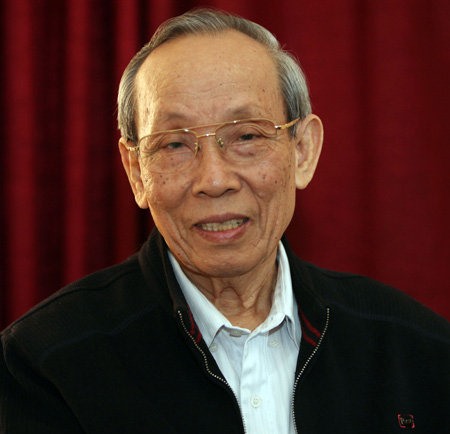 Society
Society

Professor Trần Hồng Quân, former Minister of Education and Training, speaks to Giáo dục Việt Nam (Việt Nam Education) about the imperative need to promote autonomy among Vietnamese universities
 |
Professor Trần Hồng Quân, former Minister of Education and Training, speaks to Giáo dục Việt Nam (Việt Nam Education) about the imperative need to promote autonomy among Vietnamese universities
What are the barriers Việt Nam has been facing in implementing policies on autonomy for public universities?
“Autonomy” is a fundamental concept in Western higher education discourse, but it is relatively new in Việt Nam. With the promulgation of the Law of Higher Education in 2012, for the first time in the history of Vietnam’s higher education, this new concept was legalized. However, in spite of its being included in the Law of Higher Education, autonomy is still not a reality in Vietnam’s higher education, as can be seen in various practices where Government control remains firms.
All university teaching and support staff are public employees, and their salaries are paid by the State budget.
Following the liberation of the South, all universities there were transformed into public universities, just like those in the North.
However, with the start of its renewal policies in the late 80s and early 90s, Viet Nam’s education experienced major changes. Universities were granted some autonomy in their teaching and management, including student recruitment, graduations, appointments of key management positions, sending staff on foreign tours to share experiences with foreign universities, and other activities. In the past, those rights were the purview of the Ministry of Education and Training.
Vietnamese universities have already been granted some autonomy. Why should we continue to talk about granting autonomy?
The autonomy rights we were granted were very limited. Many important decisions and policies still depend on the Ministry of Education and Training (MOET).
A salient point is the financial issue. All Vietnamese public universities are funded through the State budget. So they have to follow State budget laws. This has created huge difficulties for universities.
Both the teaching and support staff are public employees. That means they are subjected to the Labour Law in term of recruitment or dismissal of those who fail to perform their assignments.
We deem it necessary to establish universities vested with autonomous rights, including self-financing accountability - private universities.
Of course, a very important function of these private universities is to work together with public universities to train more qualified personnel for the nation.
Last but not least, Việt Nam will have a dynamic management model operating on the principle of self–autonomy. And these private universities will serve as a cross reference for public universities in their management activities.
Private universities will be an incentive for public ones to improve.
Shining examples of positive change are the Tôn Đức Thắng University, the Industrial University of Hồ Chí Minh City or the Post and Tele-communications Institute of Technology.
Among other public universities that have been granted special autonomy are the Hà Nội and Hồ Chí Minh National Universities.
Would you elaborate on the positive aspects of university autonomy?
Such universities can be more dynamic in their creativity and development. They can stand on their own feet, do what they want and assume full responsibility for their decisions.
However, not all universities want to be self-reliant. They still want to lean on Government’s subsidies.
In my opinion, it is high time for all Vietnamese educational training institutions to switch from the old system of State subsidization to a self-financing mechanism.
What are the motivations and resources that universities can find in their transformation?
The renewal process has been implemented in Việt Nam for more than 30 years. But I’m afraid to say that in the field of culture and society, in general, and the education sector in particular, management still follows the old way of State subsidy in management.
It is high time for us to make a revolution. We should try to optimize what we can do to exist and develop.
All management officials and teaching staff must always renew themselves in carrying out their assignments. I’m sure that if we all work together, a bright future is awaiting us. Self-financing is the right choice for all Vietnamese universities.
But of course, there will be a road map for that. The Government always stands by your side.
I’m confident that the State budget allocation for education will not be reduced. But it is our responsibility to think of how to use the people’s money wisely, efficiently and effectively.--VNS




